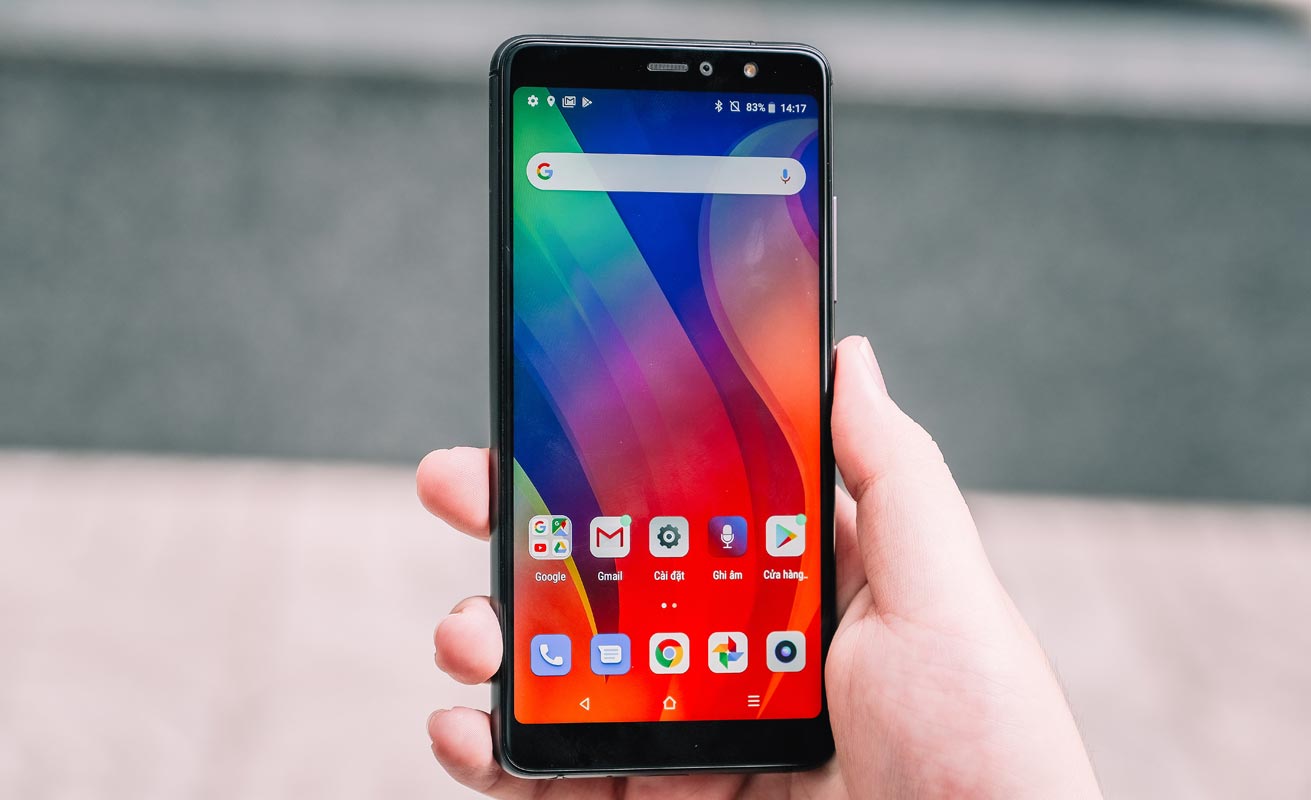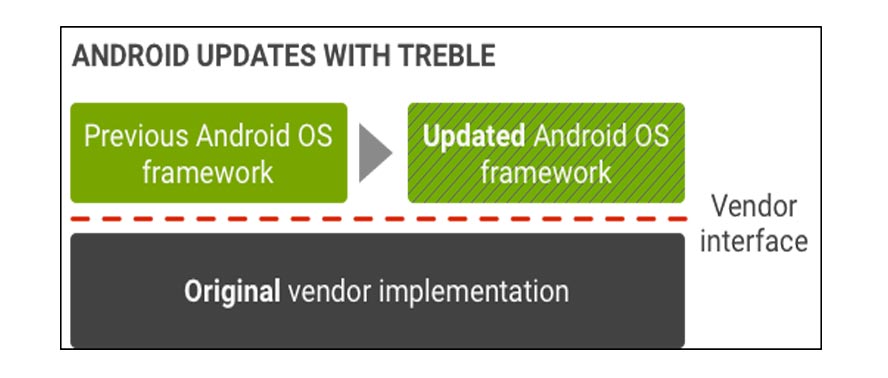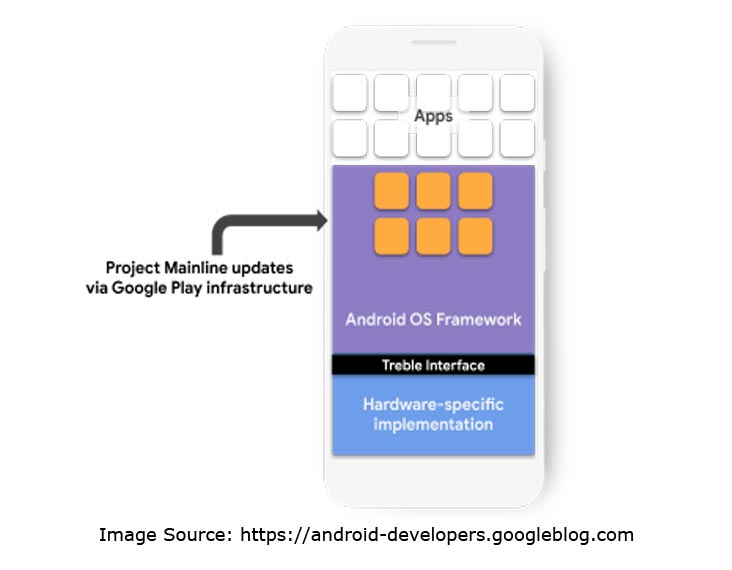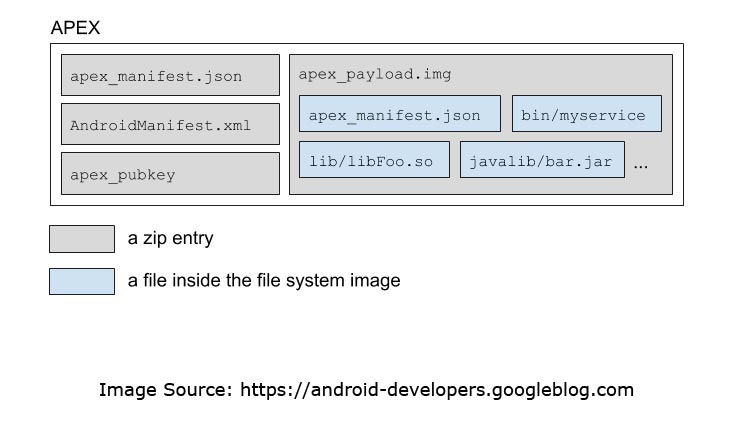This article will touch everything you need to know about Project Treble and Project Mainline; the two solutions from Google to ensure that all Android devices receive updates for security, performance, and stability faster than before. Before Android Oreo, getting your Android device to run with the latest features of the OS requires you to download a full OS update from your smartphone vendor; this is the “system updates.” Well, it is now easier to receive updates to your Android device; this time it’s going to be through Playstore. The next version of Android will debut a new file format called Apex, and it is the answer to faster Android OS security and core component upgrades. Let’s roll!
Significant Differences between Project Treble and Mainline
-
Android devices running on the Oreo version (8.0) and Pie (9.0) are currently working with Project Treble; however, it still takes some time for them to receive updates. This project is available since the launch of Android Oreo in 2017, but Project Mainline is coming through with Android 10.0 later this year (2019).
-
Project Mainline will ensure all these devices up to Android Q devices will receive these updates and patch faster.
-
Project Mainline is better and faster than Project Treble.
Google Project Treble
Android is a versatile and open-source mobile operating system that keeps growing every day. Many developers and OEMs are bringing in new technologies to advance the operating system. If you’re an Android developer or lover, one of the things you definitely should have come across with is “Project Treble;” an initiative designed by Google to help certain OEMs release updates for their software quickly and securely.

Project treble target microprocessor companies such as NVIDIA and Qualcomm. Also, with the help of Project Treble, Android apps can run swiftly on billions of devices irrespective of the hardware manufacturer. To be brief and precise; Treble is designed to separate the Android OS “framework” from OEMs Hardware Abstraction Layers (‘HALs’) so that Android as an OS could work with any device’s hardware it is installed.
Why this project by Google?
According to “google blog,” Android 9.0 (Pie) was adopted 2.5 times higher than its predecessor, Android 8.0 (Oreo). Also, it is recorded that Android security updates reached out to more devices, compared to 2018, up to 84% received security updates in Q4 2019.
Project Treble came along with Android 8.0 Oreo. For many Android users out there, you may have regularly received security patches since the start of this year. Well, thanks to Project Treble, that’s why your device is periodically receiving those updates, unlike in the previous years.
While Project Treble is working pretty well, Google is up to another big thing with Project Mainline; this will now cause your smartphone to receive updates from directly via Google Play store.
Project Mainline
Project Mainline will work in hand with Treble to see that all Android users receive updates/security patches faster. It is part of Android Q program to cut of “System Update,” which is currently the most feasible way to update your Android smartphone’s security patch level, as well as get new features of the OS working on your phone.
 With this initiative, users have Android devices won’t have to install system updates from their manufacturer before receiving updates on the OS. Google is trying to achieve this through a simple means; these updates to the OS will be sent to all Android devices via Google Play store in place of Over-The-Air (OTA). However, Google Project Mainline components are still open-source components.
With this initiative, users have Android devices won’t have to install system updates from their manufacturer before receiving updates on the OS. Google is trying to achieve this through a simple means; these updates to the OS will be sent to all Android devices via Google Play store in place of Over-The-Air (OTA). However, Google Project Mainline components are still open-source components.
All manufacturers using Android OS collaborated with Google towards the success of this initiative by modifying Android’s base code; each manufacturer tested and applied changes that would work with their devices. This collaboration of Google and its Android partners will lead to practically two things;
-
Your Android device will receive security updates, bug fixes, and other new features of the OS a lot faster than before.
-
Your device manufacturer will be relieved of so much time, as well as save its resources, which it utilizes to process “system updates.”
What’s included in this Project?
Everything about Mainline is grouped into three: Security, Privacy, and Consistency.
-
Mainline will trigger faster security updates to Android
-
It will employ more formidable algorithms to safeguard users’ data
-
Ascertain Android devices compatibility, stability, and developer consistency. It will standardize time-zone data across devices.
How will It work?

Some persons are asking, how does project mainline work? Well, Google has a new file format called “APEX.” Mainline components will be distributed as APEX files or the native APK we know. Thus, you will have to install an APEX or APK file from Playstore, and your phone automatically updates to the latest features of Android, as well as the current security patch.
What is Apex, and how does it work?
APEX is a new file format developed by Google, which is similar to APK but with a minor difference; APEX loads during the booting process. Downloading an APEX file from Playstore means your device will receive the core updates for security and performance enhancement as an app update instead of downloading a full system OS update file.
Also, Google built some foolproof systems to make sure that updates are sent safely; this systems further helps to enhance test processes.
Components
Mainline will compile the twelve main core components of Google’s Android OS and makes them a bit more flexible to access. To us, of all the advantages of Mainline, there is no better advantage of Project Mainline except that it will save users’ from having to download those large system update files, which sometimes sums up to 1.2GB in size before their devices can run the latest features.
Android Q will support Project Mainline and compile the following components in an APEX or APK file on Playstore.
Security: Media Framework Components, Conscrypt, Media Codecs, DNS Resolver.
Privacy: Permission Controller, Documents UI, ExtServices.
Consistency: Timezone data, Module Metadata, ANGLE (developers opt-in), Networking components, Network Permission Configuration, Captive Portal Login.
Project Mainline Possible devices
Meanwhile, the following devices can run Google Q beta program; Means there is a chance they can collaborate with this feature. Pixel devices are the first one always receiving regular patch updates and Major upgrades.
-
Huawei Mate 20 Pro
-
LG G8
-
Sony Xperia XZ3
-
OPPO Reno
-
Vivo X27
-
Vivo NEX S and NEX A
-
OnePlus 6T
-
Xiaomi Mi Mix 3 5G
-
Xiaomi Mi 9
-
Realme 3 Pro
-
Asus Zenfone 5z
-
Nokia 8.1
-
Tecno Spark 3 Pro
-
Essential PH-1
Wrap Up
Google always wanted users to stay secure and update in Android. That’s why they make a lot of programs like Android One, Project Treble, and Now Project Mainline. In Android One and Stock Android (Pixel phones), the work is directly Google dependent. So, Google takes care of everything. Nowadays, most of the Manufacturers using Android One and Stock Android. Samsung already released One UI and compared it with their old software strategy. It is better and working excellent. The main motto of both Project Treble and Mainline is to stay with Latest Security patch and Optimizations. Google Play Store is direct control from Google on all devices even if they use Custom Skin OS, So, they want to Implement these updates using Play Store. When downloading third-party site apps, you should always be careful. If you have any questions or want to share your thoughts about this projects comment below.
Source: Android Developers

Selva Ganesh is the Chief Editor of this Blog. He is a Computer Science Engineer, An experienced Android Developer, Professional Blogger with 8+ years in the field. He completed courses about Google News Initiative. He runs Android Infotech which offers Problem Solving Articles around the globe.



Leave a Reply